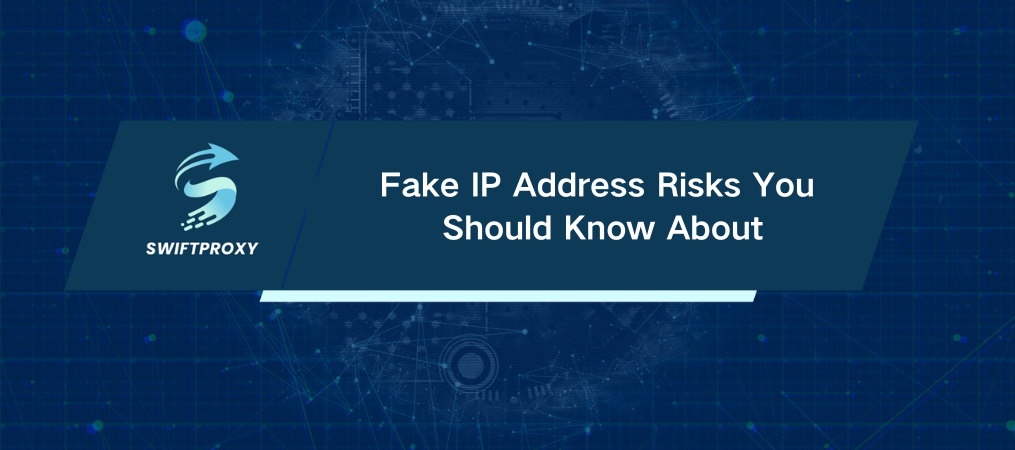Fake IP Address Risks You Should Know About

Every second, 127 new devices connect to the internet—each one assigned a unique IP address. This tiny identifier plays a colossal role in how the internet functions, but it can also expose you to significant risks. Understanding the difference between legitimate tools and misleading "fake" IP solutions can save you from data breaches, legal trouble, and wasted effort. Let's dive into the nitty-gritty and separate fact from fiction.
What Your IP Address Reveals About You
Your IP address is like your digital passport. It shares enough information to allow connections, but it also leaks personal details:
Location: Your city, region, and even area code.
Internet Service Provider (ISP): The company connecting you to the internet.
This transparency is necessary for communication online, but it also opens a window for advertisers, cybercriminals, and even law enforcement to peer into your digital life.
Who's Watching Your IP Address
Here's the thing—your IP isn't just visible to you or your ISP. It's accessible to a surprising variety of actors:
Employers: Monitoring employee productivity.
Advertisers: Analyzing browsing habits for targeted ads.
Law enforcement: Investigating cybercrimes.
Hackers: Exploiting IPs to steal sensitive data or launch attacks.
Knowing this, protecting your IP becomes a critical part of staying safe online.
Why Free Proxies Aren't Worth the Risk
Free always sounds good—until you realize the hidden costs. Many free proxies are data traps in disguise.
The Dangers of Free Proxies
Data Logging: Your browsing history, login credentials, and financial data could be collected and sold.
Weak Security: Lacking encryption, these services leave you vulnerable to cyberattacks.
Honeypots: Some free proxies exist solely to harvest personal data for profit.
The same applies to so-called "fake IP generators," which we'll explore next.
The Truth About Fake IP Generators
A "fake" IP address doesn't exist in the way many imagine. What's often called a fake IP is simply a mock or dummy IP, designed for testing, not privacy.
Mock IPs: Generated to resemble real IPs but have no connection to actual devices. Used for software testing and development.
Dummy IPs: Configured to be non-functional placeholders, often in educational or simulated environments.
These tools won't protect your privacy or bypass restrictions—they're for developers, not everyday users.
The Best Options to Change Your IP
If you're serious about privacy and functionality, skip the freebies. Here are four professional-grade solutions:
1. Rotating Proxies
These proxies automatically switch your IP address periodically. Ideal for:
Web scraping.
Avoiding detection while browsing anonymously.
Large-scale data collection.
2. Dedicated Proxies
An IP address exclusively assigned to you. Benefits include:
Greater speed and reliability.
Reduced risk of getting flagged or blocked.
Perfect for managing multiple accounts or accessing geo-restricted content.
3. Residential Proxies
Residential proxies use real IPs assigned by ISPs. They're nearly indistinguishable from actual users, making them great for:
Bypassing advanced anti-bot systems.
Viewing localized content.
Gathering hard-to-reach data.
4. Datacenter Proxies
These IPs come from data centers, not ISPs. They're faster and cheaper but less secure, making them suitable for:
Automating simple tasks.
Accessing geo-restricted content with low risk.
Common IP Risks to Watch Out For
Even with the right tools, threats still lurk. Here are the biggest ones to guard against:
1. IP Spoofing
Hackers use fake IPs to impersonate devices, often in:
DoS Attacks: Overloading a server to crash it.
DDoS Attacks: Similar but launched from multiple devices for greater impact.
2. Phishing
Scams designed to steal sensitive data through fake emails or links. Look out for poor grammar, unfamiliar URLs, and requests for personal details.
3. IP Grabbing
Extracting IP addresses using third-party tools. While ethical uses exist (like security monitoring), malicious actors use it for stalking, hacking, or extortion.
Why Should You Choose Proxies
Proxies are ideal for businesses managing high-volume tasks like web scraping or multi-account operations. They can mask your IP and offer scalability, making them the preferred choice for enterprise-level anonymity. Unlike other solutions, proxies provide the reliability needed for large-scale tasks, ensuring smooth and secure online activity.
Final Thoughts
Free or fake IP solutions might seem appealing, but they are risky and unreliable. Instead, invest in professional-grade proxies to secure your privacy and access advanced capabilities.
Looking for a trusted provider? Swiftproxy offers over 70 million proxy IPs in more than 220+ locations worldwide. Whether it's for data collection, bypassing geo-restricted content, or maintaining online anonymity, Swiftproxy has you covered.

















































